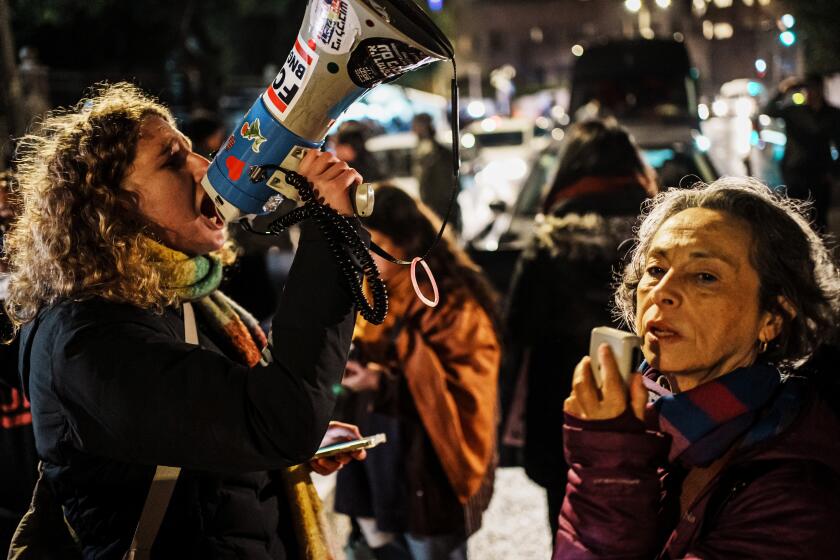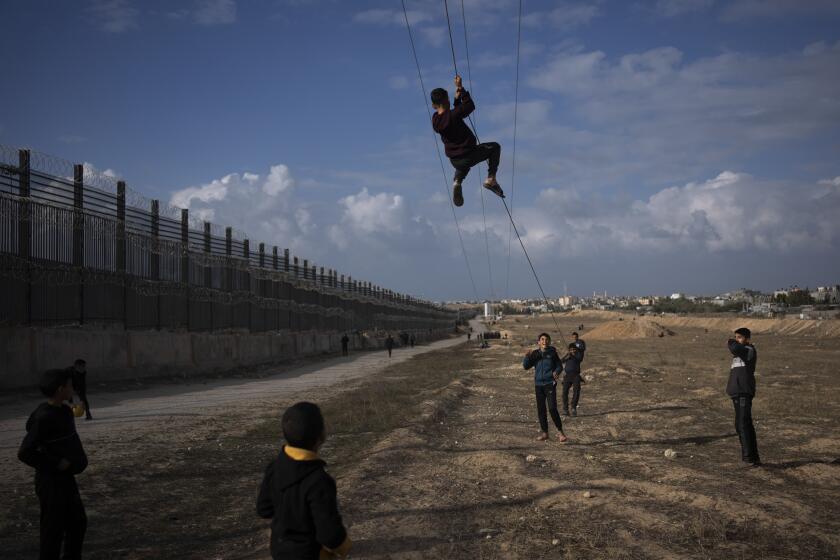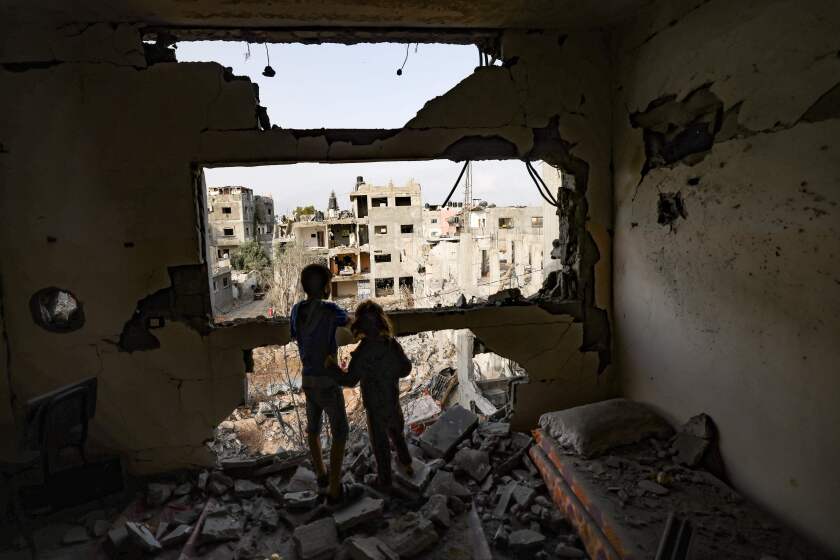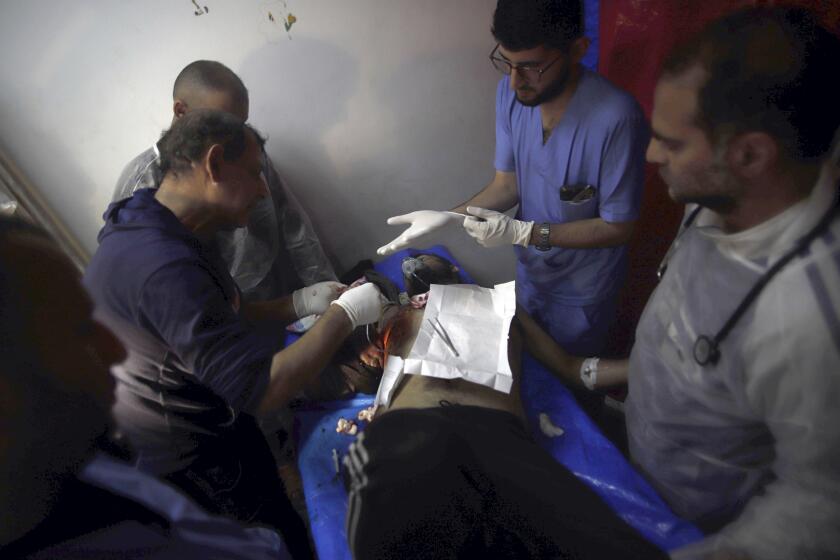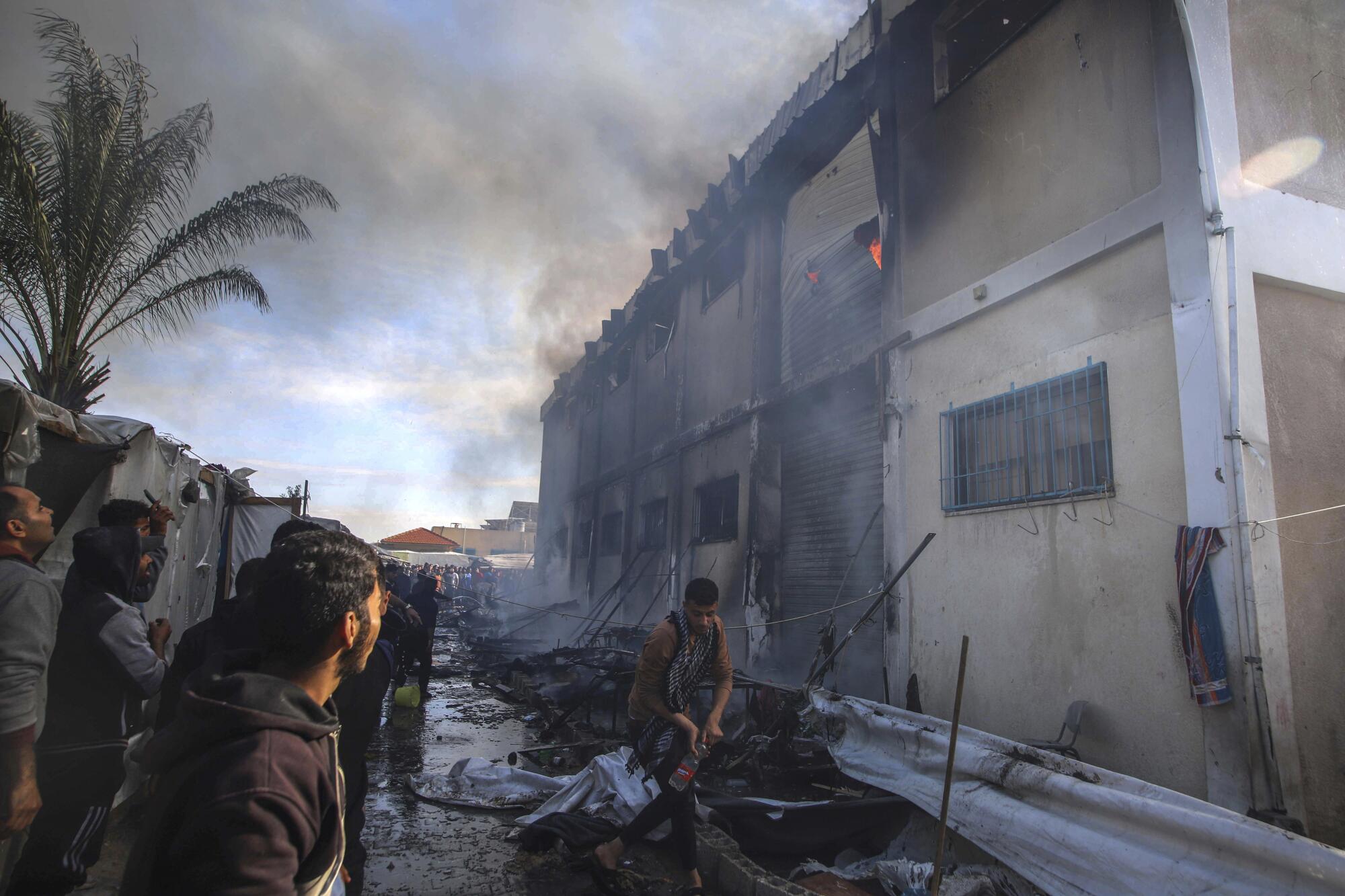
JERUSALEM — The United Nations’ top court Friday ordered Israel to limit deaths and comply with international law against genocide in its military offensive in Gaza, but stopped short of demanding an end to the war.
The International Court of Justice in The Hague issued the ruling in a case brought by South Africa accusing Israel of committing genocide against Palestinians in Gaza.
South Africa had asked the court to issue an emergency decree demanding Israel halt its military campaign until the case is decided.
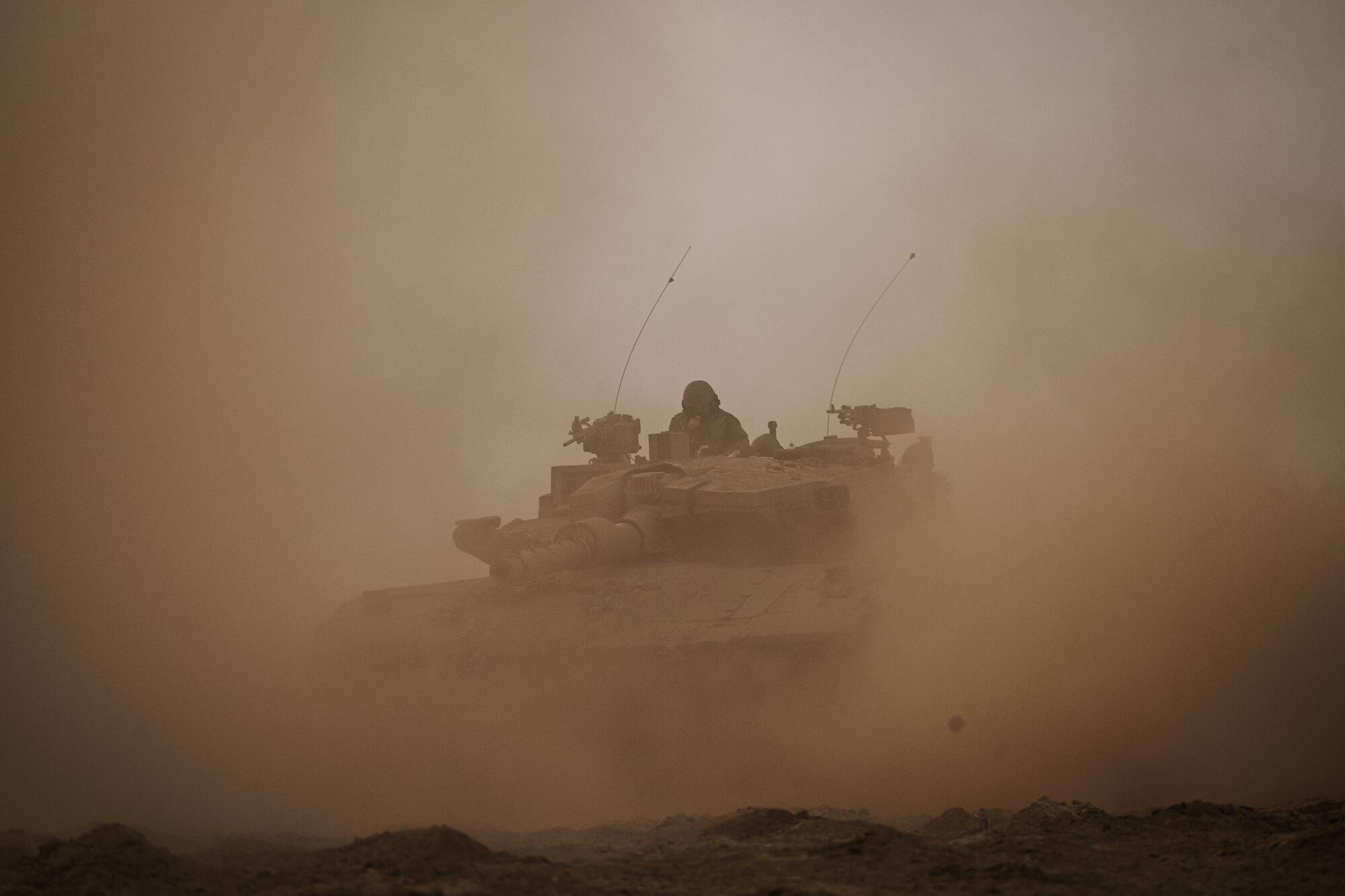
The court did not grant that request. But in a win for South Africa, the panel of 17 judges declared that the genocide case may proceed and ordered Israel to refrain from killing Palestinians and to allow more humanitarian aid to enter the besieged coastal enclave. The court also said Israel must act to prevent and punish incitement to genocide and to report back within a month to show that it is complying with the measures.
The accusation of genocide — defined in international law as an attempt to destroy a national, ethnic, racial or religious group, in whole or in part — has outraged Israelis, who have told the court that their targets are not the people of Gaza but the Hamas militants who seek to eliminate Israel.
By dropping leaflets informing civilians of planned bombing campaigns and allowing aid convoys to enter Gaza, they say they have not violated the terms of the Genocide Convention, a human rights treaty established in 1948 as a mechanism to prevent a repetition of the horrors of the Holocaust.
Officials in Israel criticized the court’s decision to proceed with the case.
Israeli Prime Minister Benjamin Netanyahu, who has come under increasing pressure at home and abroad to end the war, called the decision “outrageous” and vowed to press on with the military siege.
“We will continue to do what is necessary to defend our country and defend our people,” he said.
More than three months into the Israel-Hamas war, the families of hostages held in Gaza have grown disillusioned with Israel’s military operations.
Although Palestinians had hoped for more decisive measures, many welcomed the ruling, with the Foreign Ministry of the Palestinian Authority saying the court had “ruled in favor of humanity and international law.”
The court has no way of enforcing its order, and Israel does not recognize the court’s jurisdiction, although it sent lawyers to argue its case.
Yuval Shany, an expert in international law at the Israel Democracy Institute, said it was unclear whether the decision would trigger decisive changes in Israel’s war strategy.
Israel and Egypt are engaged in an increasingly public spat over a narrow strip of land between Egypt and Gaza.
Shany, who said the court decision “navigated between two extreme positions,” said he believes Israel will comply with the court’s request for reporting on its actions.
That process, he said, will increase scrutiny on Israel and open the door to further challenges by South Africa, which will be given the opportunity to respond to the report and could ask the court again to order a halt to fighting.
Israel invaded Gaza by land, air and sea after Hamas conducted a brutal surprise attack on southern Israel on Oct. 7. Israel says militants killed about 1,200 people, the majority of them civilians, and kidnapped more than 200.
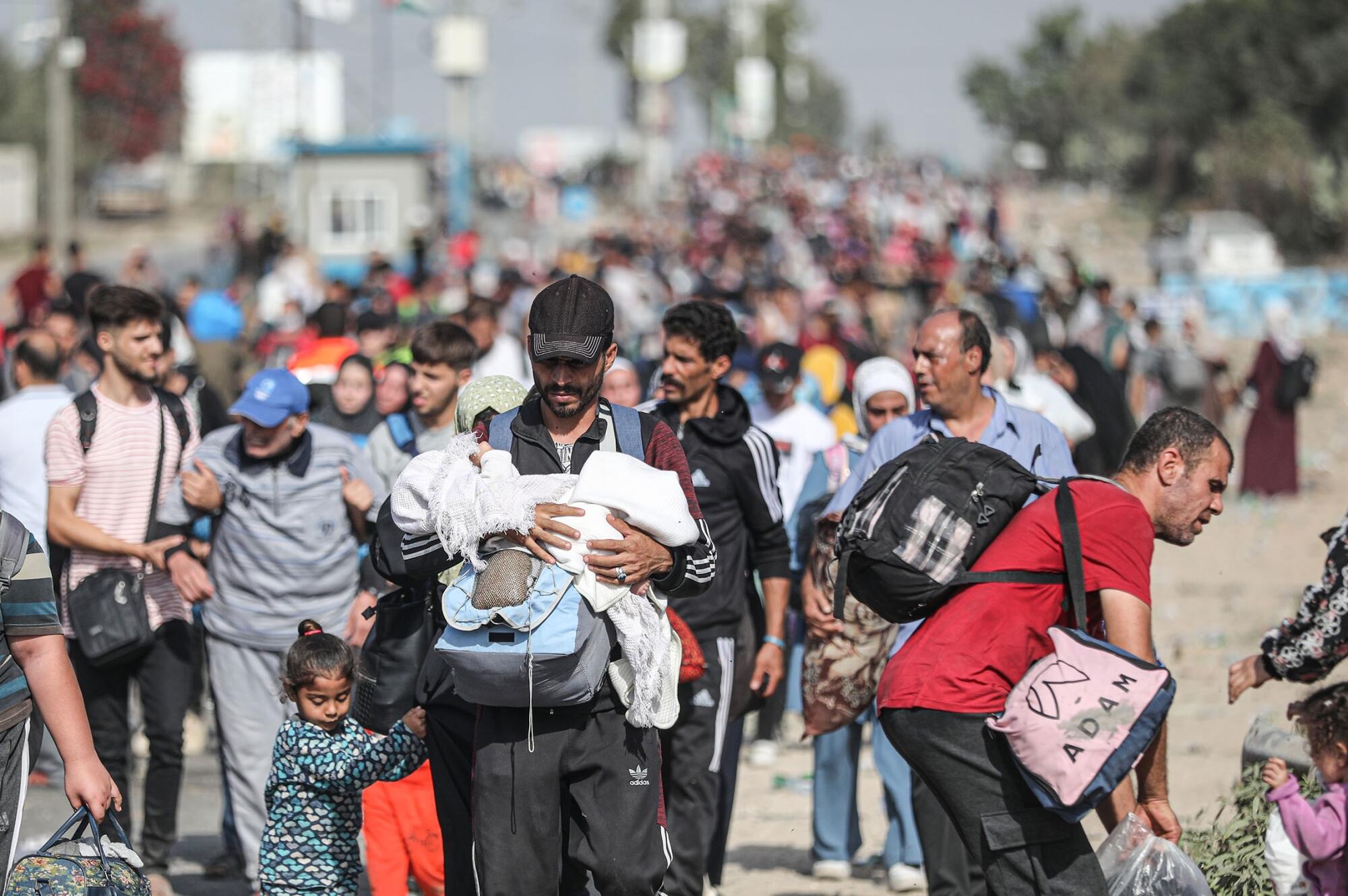
Israel’s relentless campaign in Gaza has killed more than 26,000 people, according to the Hamas-run Health Ministry. The figure does not differentiate between combatants and noncombatants, but officials say that two-thirds of the victims have been women and children.
Nearly all of Gaza’s 2.3 million residents have been displaced, and food, water and medicine are in scant supply. Disease and hunger are widespread.
South Africa formally accused Israel at the International Court of Justice on Dec. 29.
At a hearing this month, it laid out evidence, including public statements by top Israeli officials calling for the destruction of Gaza, that Israel’s actions “are genocidal in character because they are intended to bring about the destruction of a substantial part” of the Palestinians in the Gaza Strip.
Abdullah Alathamna’s family suffered when Israel shelled his family’s Gaza home in 2006. Now a father, he fears for his daughters. ‘I want to protect them,’ he says. ‘But I cannot.’
Israel dismissed the filing as a “despicable and contemptuous exploitation of the Court” and asked judges to dismiss it.
Because the case may take years to be decided, South Africa petitioned the judges to issue a call to cease fighting in the interim.
In Friday’s ruling, the court upheld South Africa’s right to sue Israel, even though it is not a direct party to the conflict. It also called on Hamas to release, unconditionally, the more than 100 hostages who remain in Gaza.
The ruling, read aloud by the court’s president, Joan E. Donoghue, expressed sympathy for civilians in Gaza and cited a United Nations official who said: “Gaza has become a place of death and despair. ... Gaza has simply become uninhabitable.”
Start your day right
Sign up for Essential California for the L.A. Times biggest news, features and recommendations in your inbox six days a week.
You may occasionally receive promotional content from the Los Angeles Times.
“The court is acutely aware of the extent of the human tragedy that is unfolding in the region andis deeply concerned about the continuing loss of life and human suffering,” Donoghue said.
She also cited statements from Israeli leaders, including Defense Minister Yoav Gallant, who told soldiers in the opening days of the war: “We are fighting human animals. ... Gaza won’t return to what it was before.”
Responding to the court’s findings on Friday, Gallant wrote on X, formerly known as Twitter, that Israel “does not need to be lectured on morality” by the court.
Israeli airstrikes on the Nuseirat urban refugee camp in the central Gaza Strip overnight killed at least 15 people, including a 5-month-old baby.
Kobi Michael, a professor at Israel’s Institute for National Security Studies, said many here believe that the United Nations is biased against Israel and that their country is held to a higher standard.
“Do you think that the approach toward Israel with regard to the war in Gaza is similar to the approach to the Americans, the British and other Western countries that were part of the coalition in Iraq or in Afghanistan?” he said. “It’s unfair.”
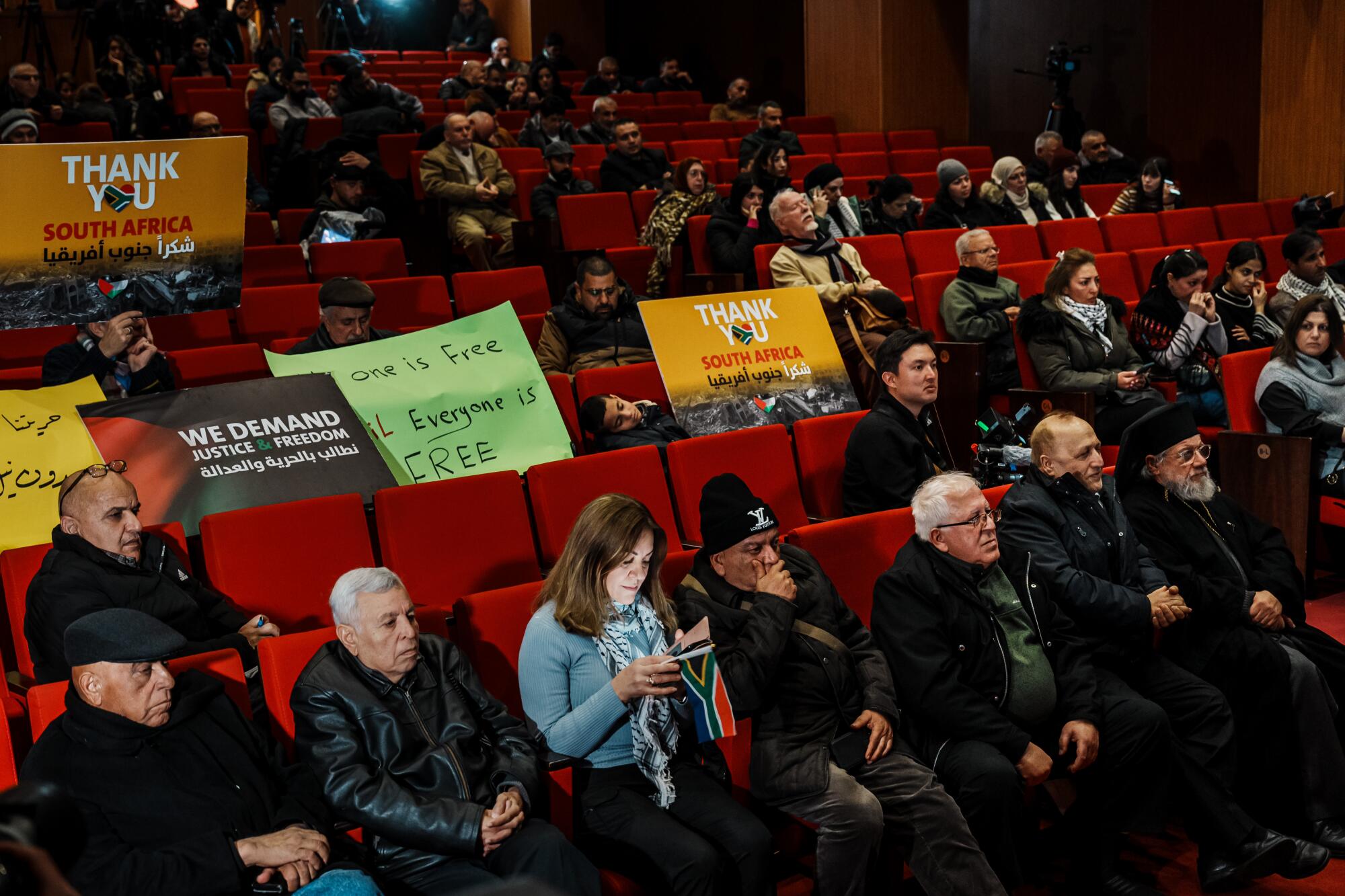
In Ramallah, a city in the occupied West Bank that serves as the de facto capital of the Palestinian territories, people gathered at a municipal hall to watch the court hearing live.
Laila Abbas, a filmmaker, said she was glad that the court had agreed to proceed with the genocide case. But given the urgent crisis in Gaza, she said she believed “more decisive and immediate measures should have been taken.”
“The decision ... won’t help the people in Gaza immediately,” she said. “And next week in Gaza it will be very cold.”
Special correspondent Asala Zreiqi in Ramallah, West Bank, contributed to this report.
More to Read
Sign up for Essential California
The most important California stories and recommendations in your inbox every morning.
You may occasionally receive promotional content from the Los Angeles Times.
